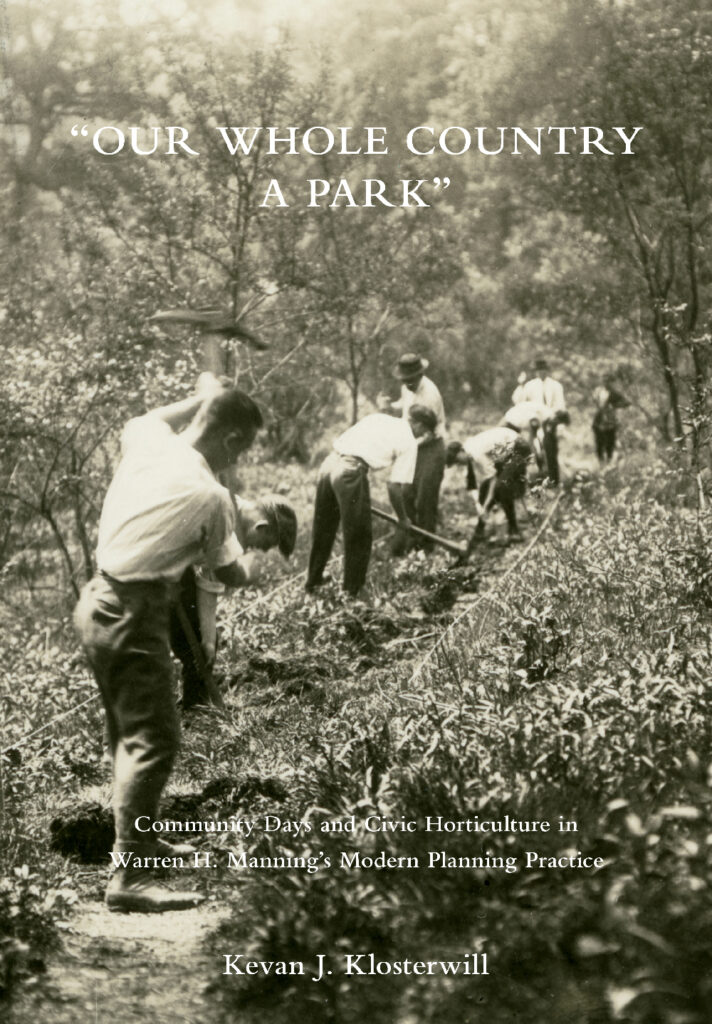“Our Whole Country a Park”
Community Days and Civic Horticulture in Warren H. Manning's Modern Planning Practice
Kevan J. Klosterwill
The Boston-based landscape architect Warren H. Manning (1860–1938) forged an innovative approach to city, regional, and national planning that paired modern planning techniques with nineteenth-century ideals of rural life. Designing landscapes at every scale, Manning’s visionary goal was to make “our whole country a park.”
In designs throughout the eastern and southern United States and in the Midwest, Manning implemented plans that preserved scenic resources for future citizens. He believed that close association with plants and experiences of natural beauty could improve individuals, their homes, parks, and towns, and American society as a whole.
Several of Manning’s projects featured “Community Days,” gatherings of hundreds of local volunteers who cleared land, planted trees, and built structures to create new public parks and playgrounds. The workers were guided by plans the Manning office produced through sophisticated mapping techniques that also anticipated future population growth—a hallmark of Manning’s approach. Through such citizen-based work—which included Boy Scouts counting city street trees and home garden competitions—Manning sought to make “our whole country a park.” He was the first landscape professional to incorporate participatory planning as a mainstay of his practice.
In this book, Kevan J. Klosterwill charts the evolution of Manning’s planning activities at ever more complex scales, illuminating the advantages as well as the pitfalls of his expansive practices. The text also exposes the racist attitudes that informed some of Manning’s plans for growing cities, especially in the South. Klosterwill’s investigation is especially timely as landscape architects today strive to engage communities in planning that meets the environmental and social equity challenges of the twenty-first century.
About the Author
Kevan J. Klosterwill
Kevan J. Klosterwill is a landscape designer, planner, and historian. He holds a PhD in the Constructed Environment from the University of Virginia and is currently researching the climate contributions and politics of permaculture, regenerative agriculture, and other practices of landscape care. Klosterwill contributed to Warren H. Manning: Landscape Architect and Environmental Planner, and has published articles in Landscape Architecture Magazine, Parks and Recreation Magazine, and Landscape Journal.
